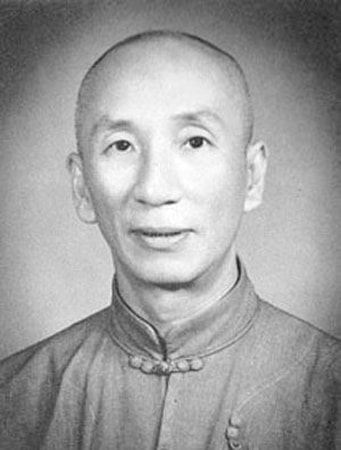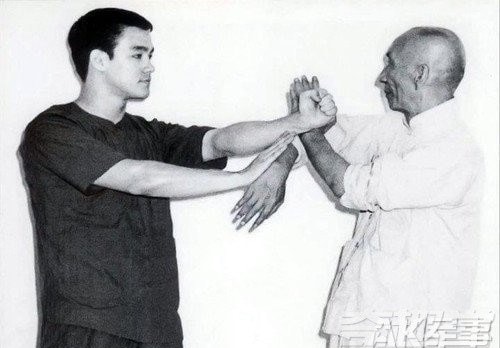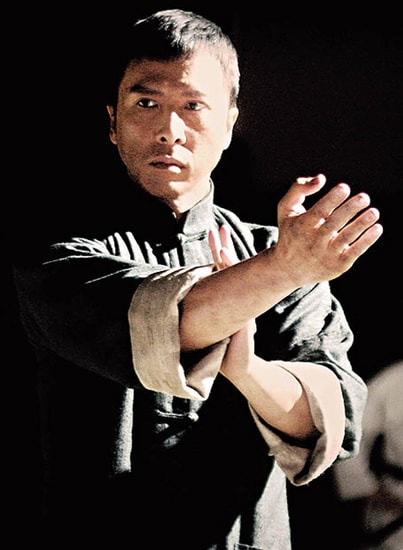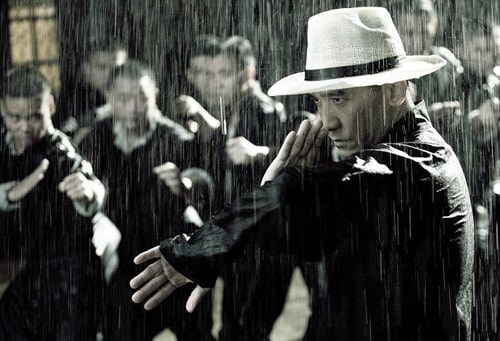Ip Man - the Wing Chun master is a silver screen legend
Master Bruce Lee's life of ups and downs has become a screen legend through a series of blockbuster films across Asia.
Life goes up and down with the times
Ip Man was born in 1893 in Foshan (Guangdong) into a wealthy family. His parents owned a large estate and a house as long as a block in the city center. At the age of 7, the skinny boy broke his piggy bank and took three silver ingots from his savings to learn martial arts from his master - Chan Wah Shun (the seventh generation successor of Wing Chun). At this time, the master was 70 years old, so Ip Man mainly learned skills from Chan Wah Shun's second disciple - Ng Chung To. After Ip Man studied with him for three years, Chan Wah Shun passed away. His last wish was for Ngo to continue teaching Ip because the boy showed talent for martial arts.
At the age of 16, Ip Man left Mainland China for Hong Kong to attend high school. In Ip Man's memory, he was a hyperactive, arrogant student who often quarreled with his European classmates at a school reserved for the children of the rich.
In boxing matches, the small Ip Man often won because of his martial arts skills. A defeat changed his life. One day, an old man named Leung came to see Ip Man to ask about martial arts. The two fought a few rounds of boxing and Ip Man was defeated. The old man revealed himself to be Leung Bik - Chan Wah Shun's senior brother and Ip Man's uncle. After the encounter, Ip Man learned martial arts from Leung Bik.
 |
| Master Ip Man. |
At the age of 24, Ip Man had mastered Wing Chun, returned to his hometown of Foshan and became a police officer. Over the 20 years from 1914 to 1937, Ip Man became famous after a series of martial arts competitions. In his free time, he often socialized and exchanged with other martial arts masters to improve his skills. Although he taught martial arts to many friends, subordinates and relatives, Ip Man did not open a martial arts school - as was the tradition of previous generations of the school. He also had no intention of passing on all of his skills to his two sons.
When the Japanese fascists occupied Southern China in 1937, the Ip Man family began to decline. From a policeman, Ip Man refused to bow to the puppet regime and foreign rule, so he joined the anti-Japanese guerrilla group. In eight years, his family went bankrupt and often fell into starvation. After Japan surrendered to the Allies in 1945, the 52-year-old Ip Man had to give up his martial arts career and work for a living for three years. In 1949, the 55-year-old martial artist's life turned a new chapter when the Chinese Communist Party came to power. His family had all their assets confiscated and had to flee to Hong Kong.
In Hong Kong, Ip Man initially worked in a restaurant and gradually became acquainted with his brothers in the Martial Arts Association. With his famous skills from the mainland, the slim master opened his own martial arts school after only one year. His first class consisted of eight students from various professions. During the last years of his teaching career in Hong Kong, Ip Man was challenged by many multinational masters from Japan and the West. He defeated them all and won great respect. In 1967, Ip and his senior disciples founded the Hong Kong Wing Chun Sports Association, uniting Wing Chun disciples and promoting this martial art to the world.
 |
| Bruce Lee and master Ip Man. |
Although Ip Man's most outstanding student was Leung Sheung, Bruce Lee is more famous in the world. Bruce Lee came to study Wing Chun with Ip Man around 1956 at the Linda Street martial arts school. Lee was talented in martial arts and practiced diligently, making rapid progress, but unfortunately, due to emigration to the United States, he was unable to learn the entire Wing Chun curriculum.
In 1972, Ip Man died of lung cancer, seven months before his student Bruce Lee. He was said to have been addicted to opium during the last stages of his life.
The Grandmaster Lives on Screen
After Ip Man's death, he became a martial arts icon in Hong Kong and China. Filmmakers were interested in recreating his image on screen. In 1998, filmmakers Lau Chun-wai and Shi Siu-fu planned to make a film about Ip Man's life, but their studio was shut down and the project was abandoned.
Later, the famous Hong Kong producer - Huynh Hao Ran - developed his own story about Ip Man. With the consent of the two martial arts master's children, he went to Foshan to study the master's life and Wing Chun for a long time. In 2007, director Yuen Woo-ping was invited to produce and Donnie Yen played the main role.
 |
| Donnie Yen is associated with the image of Ip Man on screen. |
Transforming into a real historical figure, Donnie Yen admitted: "This is the most difficult role of my career. The psychological scenes are very demanding." Donnie Yen spent several months preparing for the role. He ate only one meal a day, practiced Wing Chun, and visited Ip Man's sons' house to learn about his master's life. While practicing for the fighting scenes, the martial arts star injured his left eye and right shoulder, making it difficult for him to lift his arm several times. On set, the actor got so into his role that after the film was finished, he still maintained the same lifestyle as when he played Ip Man, wearing a loose robe, walking and talking exactly like the character.
Released in 2008, Ip Man became a phenomenon in Asian martial arts films. The $11 million film grossed $21 million. The work was praised by critics. Donnie Yen's martial arts transformations captivated viewers with Wing Chun. The image of the actor practicing Wing Chun with a wooden mannequin captured the hearts of viewers. The success of the film led to hundreds of Wing Chun schools opening in China and Asia. Donnie Yen is credited with popularizing this traditional martial art to the public. Ip Man's eldest son, Ip Chun, spoke out to express his gratitude to the actor for helping his father's legacy spread to the world.
After the first part was a hit, part two was released in 2010 and part three was released on December 31, 2015. Both parts were a hit, although not as good as the first.
Based on the life of Ip Man, Donnie Yen's trilogy is a semi-biographical work. Many plot details of the films deviate from the truth to achieve dramatic effect. In part one, the film tells the story of Ip Man from the time his wealthy family fell into poverty due to the Sino-Japanese War. The film ignores the fact that Ip Man was a policeman, and the scene of Ip Man challenging the Japanese general is fictional. Parts two and three focus on the period when Ip Man moved to Hong Kong after 1949 and both exploit dramatic martial arts scenes to satisfy the audience.
 |
| Tony Leung Chiu Wai plays Ip Man in the movie "The Grandmaster". |
The Ip Man trilogy turned the grandmaster of the past into a legend today. In addition to this work, many other silver screen stories also built statues of Ip Man. In 2008, the TV series The Legend of Bruce Lee featured the character Ip Man as Bruce Lee's master. In 2010, the movie The Legend Is Born talked about Ip Man's life. In 2013, the movie Ip Man: The Final Fight focused on Ip Man's period in Hong Kong. The movie had Master Ip's eldest son play a small role. Also in 2013, the TV series about Ip Man aired in China and attracted a lot of attention.
If the Ip Man trilogy is a commercially successful series of films about the Wing Chun master, Wong Kar-wai's The Grandmaster is considered an impressive auteur film about the life of the martial artist. The film stars Tony Leung as Ip Man, focusing on the years before the Sino-Japanese War - the end of Chinese martial arts. Compared to Donnie Yen's Ip Man trilogy, The Grandmaster focuses less on dramatic scenes and delves into the grandmaster's philosophy of martial arts and life. The work is popular with art house film lovers.
According to VNE
| RELATED NEWS |
|---|
